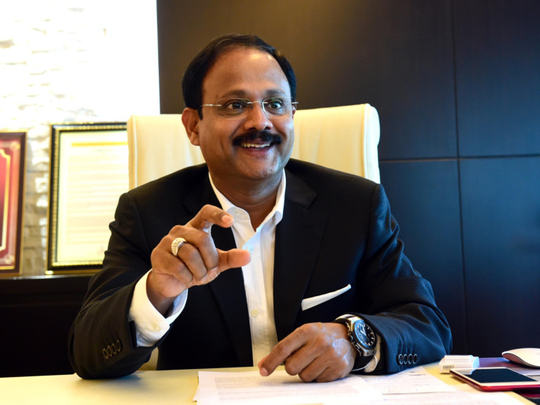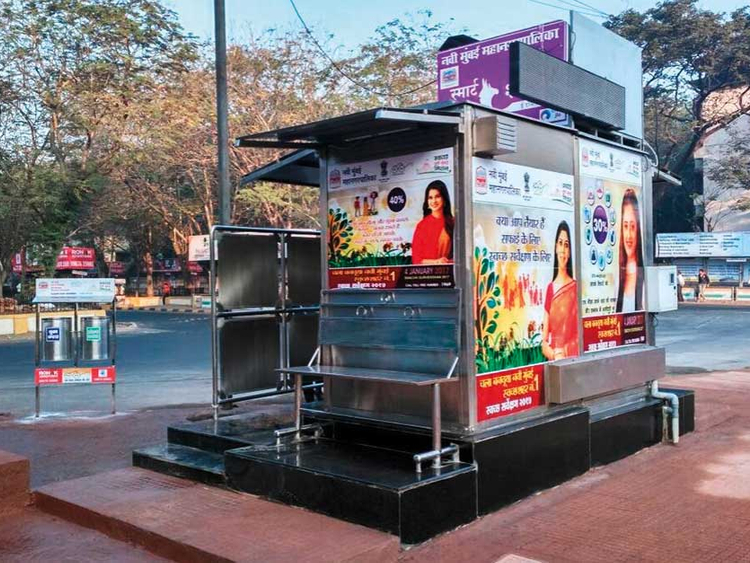
Dubai: “I am a crazy guy,” says Dubai-based businessman Siddeek Ahmed, better known as the ‘Toilet Titan’.
Ask him how he got the unusual title, and the chairman of the Eram Group, a diverse business conglomerate, explains it’s a recognition his home country India has bestowed upon him. Having innovated India’s first electronic public toilet, his group has so far built 2,500 automated toilets across the length and breadth of India where an estimated 600 million people are said to still defecate in the open.
Just back from New Delhi after receiving another award - India’s maiden Swachhathon 1.0 - Ahmed recalls that the bizarre idea of installing toilets dawned on him during one of his visits back home.
Grim reality
“I was in my native place in Kerala when the grim reality of open defecation hit me. I learnt to my horror that some 600 million people, many of them women and young girls, still took to the outdoors to defecate, even as they stood the risk of getting photographed and being exposed on social media by miscreants. I found this unacceptable and assigned a team to do some research on the reasons behind the rampant open defecation. When I realised that lack of toilets was at the root of the problem, I vowed to do what little I could to change the trend.”
But the task at hand was not easy. Ahmed says, “Things were difficult as we were foraying into a highly nascent, non-glamorous and neglected sector. But we were determined, so we set up an R&D based social enterprise called Eram Scientific Solutions. We sought to develop an indigenous technology which could target users in the Indian context. Soon, we came up with eToilets that were simple to use and maintain. Features like unmanned pre-flushing, automatic flushing and platform cleaning, inbuilt water tanks, sensors for water and power conservation and coin-operated entry helped serve the purpose.”
GPRS connectivity
Ahmed says, “Keeping in mind individual needs, these toilets are programmed to flush 1.5 litres of water after three minutes of usage or 4.5 litres if usage is longer. What’s more, the performance of each toilet can be monitored via web using GPRS connectivity. We have also set up sewage treatment plants – 600 of them so far – so that the waste can be suitably treated.”
As Eram’s eToilets began to revolutionise public sanitation in India with a footprint of over 2,500 across 22 states, awards poured in, as did international grants and research partnership opportunities. “One of the most prestigious grants we received was from the Bill & Melinda Gates Foundation which gave us Rs30 million and conferred on us the Reinvent the Toilet Challenge Award,” says Ahmed with a measure of pride.
He also talks of how Eram tied up with several Western universities, including Duke University and University of South Florida, for joint studies and field trials for effective waste processing.
Many variants
From the basic eToilet models, variants like She Toilets for women, disabled friendly toilets and ‘D-lite’ versions for school kids have also been developed. “We have a variant with a restroom too. It features napkin vending machines, a napkin incinerator, baby feeding and diaper changing station, a fan, bench and mirror. The unit remains unmanned and is safe for women to use.”
The vast network of eToilets has also prompted Eram to develop an app through which one can search for and locate the nearest eToilet.
The success of the social enterprise back home gives Ahmed immense satisfaction. Unfazed by rankings that count him among the richest Indians in the Gulf, he says, “It is more important to be rich in the heart.” A father of three, he says his biggest advice to his children is: “Be humane. The rest will take care of itself.”













